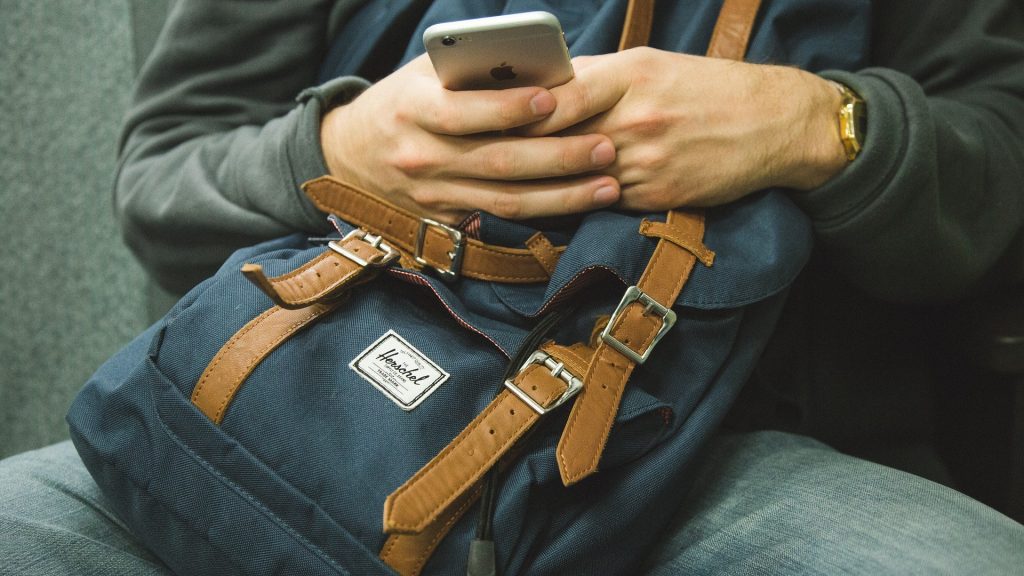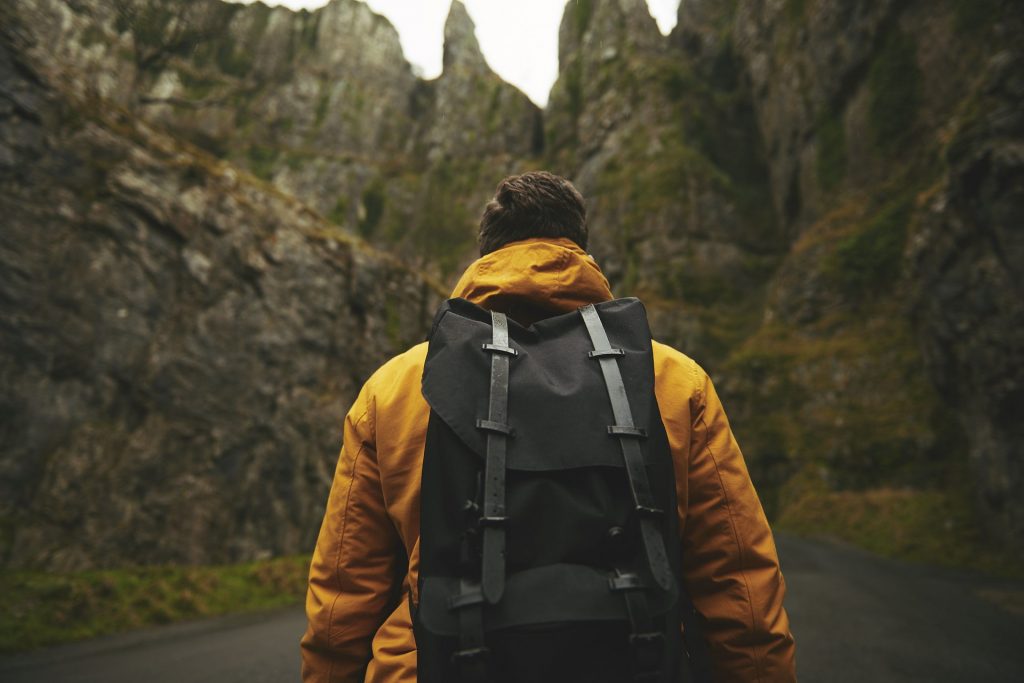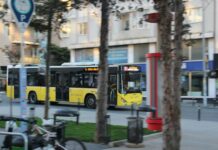The day’s walk was along a section of road with gently rolling hills, gradually climbing towards Denizli, a city halfway between the Menderes River valley and the Central Anatolia plateau. My right foot was still hurting a bit, not enough to limp, but enough to need to be careful with it. I welcomed the gradual uphill climb, because the slower pace meant I was moving my body slowly, and so had extra time to pay attention to my form.
Midway through the morning, I felt like taking a little break. So I leaned against a rock near the shoulder. I set down my pack, opened it, and pulled out my phone to check my emails. I saw an email from my friend Denise Waters, a teacher at an elementary school near Seattle. I had told her that I would welcome inquiries from her 4th-grade class. She had forwarded one of their questions to me:
“Why are you walking? Why don’t you just take a bus?”

Good question, I thought. I’m not really sure. I looked out across the valley below for a moment, searching for that place deep down inside me that might have something to say. I tapped a reply into my phone:
Yours is an excellent question. Taking a bus would, in fact, allow me to see more of the country. Walking will limit my range. If something is a mere 60 miles out of my way, it is not a quick day trip. Sixty miles is an hour or two by car, but it is a week on foot.
The reason I want to walk is I want to challenge myself to be less afraid of the world. To be less afraid to admit I misunderstand something. To be less afraid to admit something is out of my control. It is difficult to admit those things, but much comes from doing so. After all, if I am busy insisting I understand something that I don’t or trying to control something I can’t, it is awfully hard to be open to creativity and inspiration.
I like to talk about these things, and I figure that if I am going to talk about them, I better practice them. Walking is me practicing them. It is me putting my life where my mouth is. It is me submitting to the world. When I walk, my speed is slow, and my range is limited. I have little choice but to accept the world as it exists in front of me. Because I am less mobile than the people around me, I have little choice but to submit to their way of life, to learn how to exist in the world they have created. There is no hopping in the car and escaping a problem. If I ruffle someone’s feathers, I have little choice but to remain present and participate in whatever unfolds.
Walking is a great way to see the country and meet its people, but I could see the country and meet its people by bus. Walking turns this trip into a personal pilgrimage, a way for me to practice submission to the world mile after mile, day after day, week after week, month after month.
I tapped “send,” pulled my pack back on and walked back out to the road.
There wasn’t much along this section of road, other than big rocks and fields of dry grass. It was as if the world had decided to either move to the more fertile valley below, or to the bustling city of Denizli above. No middle ground. So I walked for a couple hours by myself with nothing to interrupt me.
In the early afternoon, I came upon a group of about 8 middle-aged men sitting in the shade of a large tarp they had raised by the side of the road. They were selling watermelons from the back of a rusty old pickup truck, and they waved me over to join them for çay and watermelon. I thought briefly about passing by with a quick hello, as I was eager to get to Denizli.
However, I decided to be friendly, so I called out “Hello” and crossed the road to sit down with them. Having been on the road for a couple of weeks, I had started to realize that part of my daily routine was going to be stopping by the side of the road and greeting people. I ducked under the tarp and reached out to shake hands with each of them.

They were peasant farmers from about 35 to 55 years old. They had stacked their watermelons high in the bed of the pickup truck and backed it under the tarp to shade the melons.
They had also set up a table and laid out slices of ripe, red, juicy-looking watermelons. I spotted an extra chair and took off my pack. While I pulled the chair up to the table one of the men set a glass of tea and a couple slices of watermelon on the table in front of me.
The tea was too hot to drink still, so I took a bite of the watermelon. I wiped the juice off my chin with my forearm.
“Where are you from?” they asked.
“California.”
“Where are you going?”
“Well, first Denizli, but then Van.”
“Are you walking?” they asked.
“Yes.”
“By yourself?”
“Yes, just me.”
They looked at each other and raised their eyebrows. They turned back to me. One of them asked, “Why are you doing it?”
I paused for a bit but could not come up with a simple answer. I shook my head, chuckled foolishly, and replied, “I don’t know.”
I was learning that if I laughed at myself in an I-must-be-crazy sort of way while answering that, people would laugh with me and let it drop. But if I didn’t, if I became serious and tried to explain in my limited Turkish vocabulary, the conversation would A) turn uncomfortably silent or, B) people would ask me if I worked for the CIA.
These men chuckled.
“You should write a book,” one of them suggested.
“That’s a good idea. Maybe I will.”
“Will you mention us in the book?” one of the others asked.
“Yes, I’ll be sure to do that.”
After eating a few more slices of watermelon and making small talk about the beauty of the area and the friendliness of the people, I stood up, shook their hands again, and said goodbye. I shouldered my pack and walked out to the road to continue on.

I had drunk so much tea and eaten so much watermelon that I needed to go to the bathroom. I spotted a small roadside cafe up ahead on the other side of the road, and, when I reached it, asked the attendant if I could use the restroom. Our exchange was interrupted by an ear-splitting explosion from across the road right where I had been walking a few moments before. As we turned we saw a heavily loaded truck wobbling off the road onto the shoulder amidst a cloud of dust. Its front tire, which had blown out, was a flapping piece of rubber.
I thought, Man, I’m glad I came over here to take a piss. That truck would have hit me.









